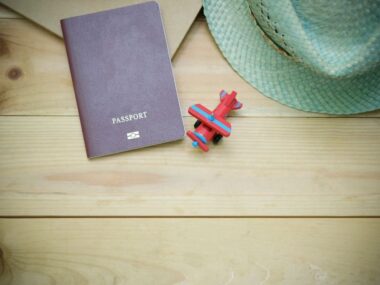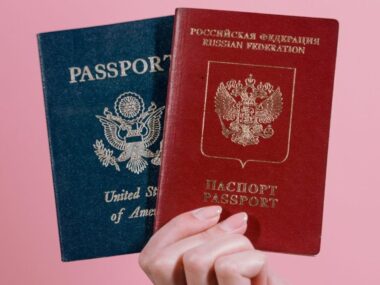Canada is known for its welcoming immigration policies, especially when it comes to keeping families together. For Canadian citizens and permanent residents who are married or in a committed relationship with someone from another country, the Canadian Sponsorship Spouse Visa provides an opportunity to bring their partner to Canada and build a future together.
This visa program, part of the Family Class Sponsorship, allows eligible Canadians to sponsor their spouse or common-law partner for permanent residency. It is designed to support genuine relationships while ensuring that both the sponsor and the sponsored spouse meet specific requirements set by Immigration, Refugees, and Citizenship Canada (IRCC).
However, the application process can be complex, requiring careful documentation, eligibility verification, and patience as processing times vary. In this article, we will guide you through everything you need to know about the Canadian Sponsorship Spouse Visa, including eligibility criteria, application steps, processing timelines, potential challenges, and tips for a successful application. If you are looking to reunite with your partner in Canada, this comprehensive guide will help you navigate the process smoothly.
Eligibility Requirements for Sponsorship
To sponsor a spouse or common-law partner, the sponsor must meet specific eligibility criteria set by Immigration, Refugees, and Citizenship Canada (IRCC). Both the sponsor and the sponsored spouse or partner must fulfill certain conditions to ensure the legitimacy of the relationship and the financial stability of the couple in Canada. Below are the key requirements:
Eligibility Requirements for the Sponsor
To qualify as a sponsor, you must:
Be a Canadian Citizen or Permanent Resident
- You must either hold Canadian citizenship or permanent residency status.
- If you are a Canadian citizen living outside Canada, you must prove that you intend to live in Canada with your spouse after they obtain permanent residency.
- Permanent residents must be residing in Canada to sponsor a spouse.
Be at Least 18 Years Old
- Sponsors must be 18 years or older at the time of applying.
-
Prove Financial Stability
- While there is no minimum income requirement for spousal sponsorship, you must demonstrate that you are financially capable of supporting your spouse.
- You must agree to provide for your spouse’s basic needs (food, shelter, clothing) for three years after they receive permanent residence.
Not Be Receiving Social Assistance
- You must not be receiving government financial assistance (except for disability benefits).
Not Have a Criminal Record
- You may be ineligible to sponsor if you have been convicted of a violent or sexual crime, particularly against a family member.
- If you have a past conviction, you may need to apply for rehabilitation before sponsoring your spouse.
Not Have Sponsored a Previous Spouse in the Last Five Years
- If you were previously sponsored as a spouse or you sponsored a different spouse before, you must wait five years before sponsoring another spouse or partner.
Not Be Bankrupt or Under a Removal Order
- If you are bankrupt or facing removal from Canada (for permanent residents), you are not eligible to sponsor until your situation is resolved.
Eligibility Requirements for the Sponsored Spouse or Partner
The person being sponsored must also meet specific criteria, including:
Be Legally Married or in a Common-Law Relationship
- If applying as a spouse, you must provide a valid marriage certificate recognized by the Canadian government.
- If applying as a common-law partner, you must prove that you have lived together for at least one year in a committed relationship.
- If applying as a conjugal partner, you must show that exceptional circumstances (such as legal barriers or cultural restrictions) prevented you from living together for a year.
Be at Least 18 Years Old
- The sponsored spouse or partner must be 18 years or older at the time of application.
Pass Medical and Criminal Background Checks
- The sponsored spouse must undergo a medical examination by an IRCC-approved physician to ensure they do not have a condition that could pose a health risk to Canadians.
- They must also provide police clearance certificates from all countries where they have lived for more than six months since the age of 18.
Prove a Genuine Relationship
- The couple must provide sufficient evidence that their marriage or partnership is genuine.
- IRCC will scrutinize relationships for signs of marriage fraud (i.e., marriages of convenience for immigration purposes).
- Evidence can include photos together, travel history, joint bank accounts, lease agreements, or messages exchanged.
Types of Sponsorship Applications
When sponsoring a spouse or common-law partner to Canada, there are two main types of applications: Outland Sponsorship and Inland Sponsorship. The choice between these options depends on the location of the sponsored spouse or partner at the time of application and whether they want to stay in Canada during the process.
Outland Sponsorship
The Outland Sponsorship process is used when the sponsored spouse or common-law partner resides outside Canada. This application is processed through the visa office in the applicant’s home country or where they have legally resided for at least one year.
Key Features of Outland Sponsorship:
The sponsored spouse can continue living in their home country while the application is processed.
They may apply for a Temporary Resident Visa (TRV) to visit their sponsor in Canada while waiting for approval.
Outland applications may be faster in some cases, depending on the visa office handling the case.
If the application is refused, the couple has the right to appeal the decision.
Who Should Choose Outland Sponsorship?
- If the sponsored spouse lives outside Canada and prefers to wait in their home country.
- If the couple wants the option to appeal in case of a refusal.
- If processing times in their home country’s visa office are faster than Inland Sponsorship.
Inland Sponsorship
The Inland Sponsorship process is used when the sponsored spouse or partner is already in Canada on a temporary visa (such as a visitor, student, or work permit). This allows them to stay in Canada while their application is being processed.
Key Features of Inland Sponsorship:
The sponsored spouse must remain in Canada throughout the application process.
They may qualify for an Open Work Permit, allowing them to work while waiting for their permanent residency.
This option is ideal for couples who are already living together in Canada.
No right to appeal if the application is refused.
Leaving Canada while the application is in progress may lead to complications, especially if the spouse is denied re-entry.
Who Should Choose Inland Sponsorship?
- If the sponsored spouse is already in Canada on a valid visa.
- If the spouse wants to work while waiting for permanent residency.
- If the couple does not need to travel outside Canada during processing.
Step-by-Step Application Process
Applying for the Canadian Sponsorship Spouse Visa requires careful attention to detail and the submission of various documents to prove the legitimacy of the relationship. Below is a step-by-step guide to help you navigate the process smoothly.
Determine Eligibility
Before starting the application, both the sponsor and the sponsored spouse must ensure they meet the eligibility requirements.
- The sponsor must be a Canadian citizen or permanent resident, at least 18 years old, and financially capable of supporting their spouse.
- The sponsored spouse or partner must be at least 18 years old, pass a medical exam and security check, and provide evidence of a genuine relationship with the sponsor.
Checking the eligibility criteria beforehand helps avoid delays or rejection.
Gather Required Documents
A complete and accurate application package is essential for a smooth process. The required documents may vary depending on whether the application is Inland or Outland, but generally include:
For the Sponsor:
Proof of Canadian citizenship or permanent residency (passport, PR card, birth certificate)
Financial documents (proof of employment, tax returns, bank statements)
Signed Sponsorship Undertaking Agreement, confirming financial support for the spouse for three years
Police clearance (if required for background check)
For the Sponsored Spouse/Partner:
Valid passport and birth certificate
Marriage certificate (for spousal sponsorship) or proof of common-law relationship (joint leases, bills, bank accounts)
Police clearance certificates from all countries lived in for more than six months since the age of 18
Immigration medical exam results from an IRCC-approved panel physician
Two passport-sized photos meeting IRCC specifications
Proof of Relationship Documents:
Wedding photos, honeymoon pictures, and other photos together
Screenshots of conversations, emails, and call logs
Travel records showing visits to each other’s country
Affidavits from family and friends confirming the relationship
Note: All documents must be translated into English or French if they are in another language.
Complete the Application Forms
The sponsorship application consists of two parts:
- Sponsor’s Application (to prove they qualify to sponsor)
- Sponsored Spouse’s Application (to apply for permanent residence)
Some key forms to complete include:
- IMM 5289 – Application to Sponsor, Sponsorship Agreement, and Undertaking
- IMM 5532 – Relationship Information and Sponsorship Evaluation
- IMM 1344 – Application to Sponsor and Undertaking
- IMM 5406 – Additional Family Information
- IMM 5669 – Schedule A – Background/Declaration
- IMM 0008 – Generic Application for Permanent Residence
Ensure all forms are signed and completed accurately. Missing signatures or incorrect information can delay processing.
Pay the Application Fees
Fees must be paid online through the IRCC website before submitting the application.
Typical Fees (as of 2024):
- Sponsorship fee: $75 CAD
- Principal applicant processing fee: $490 CAD
- Right of Permanent Residence Fee (RPRF): $515 CAD
- Biometrics fee: $85 CAD (if required)
- Medical exam fee: Varies by country
Total fees are usually around $1,100 CAD for most applications.
Submit the Application Package
Once all forms and supporting documents are completed, submit the application based on the type of sponsorship:
- For Outland Sponsorship: Submit the application online through the IRCC portal or mail it to the appropriate visa office.
- For Inland Sponsorship: Submit the application online through the Permanent Residence Portal.
After submission, IRCC will send a confirmation of receipt (AOR) with an application number.
Biometrics, Medical Exam, and Police Clearance
After the initial review, IRCC will request:
Biometrics appointment (fingerprints and photos at a Visa Application Center)
Medical examination (if not submitted earlier)
Additional police clearance certificates (if necessary)
Tip: Completing these requirements quickly can help speed up processing.
Background Checks and Relationship Verification
IRCC conducts:
Criminality and security checks on the sponsored spouse
Verification of relationship authenticity (including interviews in some cases)
If IRCC suspects a marriage of convenience, they may request an interview with the couple at a Canadian embassy or an immigration office.
Open Work Permit (For Inland Sponsorship)
If applying through Inland Sponsorship, the sponsored spouse can apply for an Open Work Permit while waiting for permanent residency. This allows them to legally work in Canada during the processing period.
- Apply online using IMM 5710 (Application to Change Conditions or Extend Stay in Canada).
- Processing takes around 4-5 months.
Final Decision and Approval
Once all background checks and relationship assessments are completed, IRCC will make a decision:
If approved:
- The spouse will receive Confirmation of Permanent Residence (COPR) and, if applicable, a Permanent Resident Visa (PRV).
- If Outland Sponsorship, the spouse must land in Canada to activate PR status.
- If Inland Sponsorship, PR status will be granted in Canada.
If refused:
- Outland applicants can appeal the decision through the Immigration Appeal Division (IAD).
- Inland applicants cannot appeal but may reapply or seek judicial review.
Landing in Canada and Receiving PR Card
If applying from outside Canada, the sponsored spouse must travel to Canada and present their COPR and passport to an immigration officer at the border.
- After arrival, they will receive their Permanent Resident (PR) Card by mail in 3-6 months.
- PR status allows them to live, work, and study in Canada.
Processing Time for the Spousal Sponsorship Visa
The processing time for the Canadian Spousal Sponsorship Visa depends on several factors, including whether the application is Inland or Outland, the country of the sponsored spouse, and the completeness of the application.
As of 2024, the estimated processing times for spousal sponsorship applications are:
| Type of Sponsorship | Estimated Processing Time |
|---|---|
| Inland Sponsorship (within Canada) | 12 months |
| Outland Sponsorship (outside Canada) | 12–18 months |
These timelines are only estimates and can change based on IRCC processing backlogs, additional document requests, or interview requirements.
Factors Affecting Processing Time
Several factors influence how long it takes to process a spousal sponsorship visa:
Type of Sponsorship Application
- Inland Sponsorship typically takes 12 months but may take longer if IRCC requires additional verification.
- Outland Sponsorship varies based on the visa office handling the case. Some countries have faster processing times than others.
Completeness of the Application
- Missing documents, incorrect forms, or incomplete relationship proof can delay processing.
- Double-checking forms and including strong relationship evidence can speed up the process.
Additional Document Requests or Interviews
- IRCC may request extra documents or a spousal interview if they suspect a marriage of convenience.
- If an interview is required, processing can take several extra months.
Background Checks and Security Clearance
- The sponsored spouse must pass criminality and security screenings.
- If they have lived in multiple countries, obtaining police clearance certificates can take time.
Country of the Sponsored Spouse
- Processing times vary by visa office. Some countries have faster processing times than others.
- For Outland applications, check IRCC’s website for country-specific processing times.
Biometrics, Medical Exams, and COVID-19 Delays
- Biometrics and immigration medical exams must be completed on time to avoid delays.
- Although most COVID-related backlogs have cleared, some applications may still experience delays.
Conclusion
Sponsoring your spouse or common-law partner to Canada through the Canadian Spousal Sponsorship Visa is a rewarding but detailed process. The Canadian government prioritizes keeping families together, but applicants must carefully follow the requirements to avoid delays or refusals.
Whether you choose Inland Sponsorship (for spouses already in Canada) or Outland Sponsorship (for those living abroad), success depends on submitting a complete and well-documented application. Providing strong proof of a genuine relationship, ensuring eligibility, and responding promptly to IRCC requests can significantly improve the chances of approval.
While processing times can take 12 to 18 months, patience and proper preparation are key. If approved, the sponsored spouse gains permanent residency, allowing them to live, work, and build a future in Canada with their partner.







